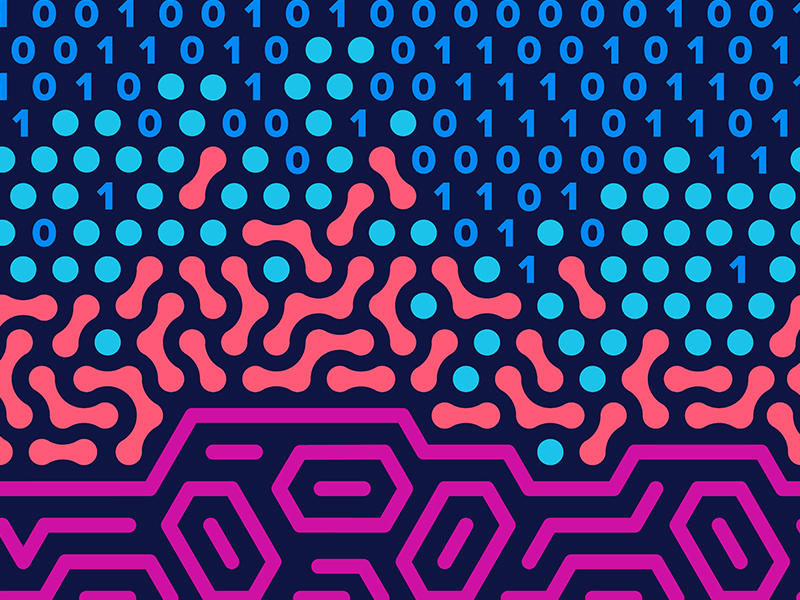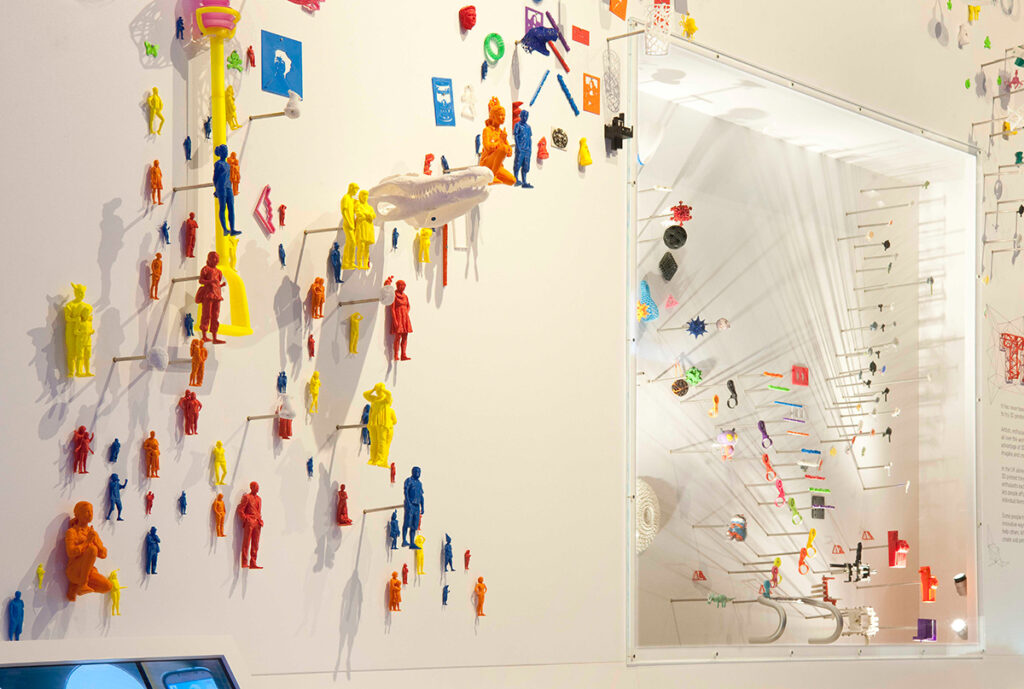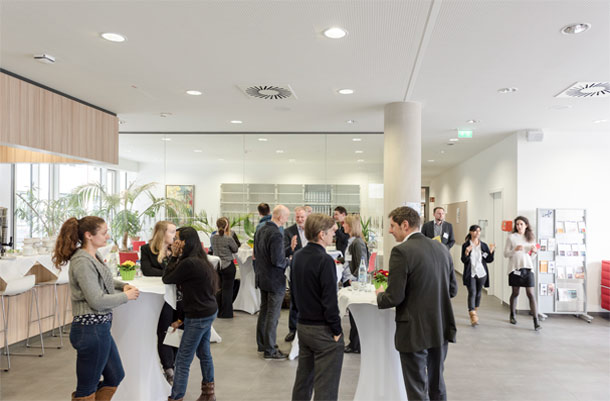Creating the Future
Workshops & ConferencesWorkshops / Conferences
To Promote Interdisciplinary Exchange
The Hector Fellow Academy sponsors workshops and international conferences, which are organized by several Hector Fellows or Hector RCD Awardees. Thereby cooperation between Hector Fellows and Hector RCD Awardee and interdisciplinary research is supported.
Future Workshops / Conferences

Innovations in Single Cell Omics
May 12–13, 2025 | Berlin, Langenbeck-Virchow-Haus
Conference
The Innovations in Single Cell Omics (ISCO) conference is co-organized by leading centres for genomic and biomedical research in Berlin and Barcelona and brings together young single cell researchers from different disciplines to enable scientific exchange and foster new international collaborations. Hector RCD Awardee Leif S. Ludwig is one of the organizers of the symposium.
The human body consists of trillions of cells, but a mutation in one of them can cause cancer. This example demonstrates that biology is not a process driven by averages and highlights the importance of single cell-level studies. The last years have seen a rapid expansion of the field of single-cell genomics, which has enabled paradigm shifts in many fields of biological sciences, ranging from evolutionary biology over stem cell biology to cancer research. The symposiums gives the opportunity to learn from experts, share current research work, and build new connections in the field.
Registration is possible until May 1, 2025 on the website of the event.
Registration fee will be 100 € for PhD and Postdocs, 250 € for senior scientists and 500 € for scientists from industry.
Past Workshops / Conferences
2023 — Innovations in Single Cell Omics
May 15 to 16, 2023 | Berlin, Langenbeck-Virchow-Haus
Scientific Symposium
The Innovations in Single Cell Omics (ISCO) symposium was co-organized by Max Delbrück Center, Charité – Universitätsmedizin Berlin, and Berlin Institute of Health with the goal of bringing together young single-cell researchers from various disciplines to promote scientific exchange and foster new international collaborations. Hector RCD Awardee Leif S. Ludwig was one of the organizers of the symposium.
The field of single-cell genomics has rapidly expanded in recent years, allowing paradigm shifts in many fields of biological sciences ranging from evolutionary biology to stem cell biology to cancer research. From innovations in single-cell and spatially-resolved technologies to new computational approaches and applications in the medical arena, the conference will cover a broad range of subjects at the forefront of single cell research. The symposiums gives the opportunity to learn from experts, share current research work, and build new connections in the field.
2021 — Re-imagining the futures of 3D printing in society
March 23 to 24, 2021 | Virtual event
Scientific symposium and expert scenario workshop
This scientific symposium offered the opportunity to discuss the challenges and social trends of 3D printing with leading international experts from the humanities and social sciences. It was organized by the Hector Fellows Peter Gumbsch, A. Stephen K. Hashmi and Martin Wegener in the context of the Cluster of Excellence 3D Matter Made to Order (3DMM2O) together with the Institute for Technology Assessment and Systems Analysis (ITAS) at the Karlsruhe Institute of Technology (KIT).
3D printing changed imagining future production and consumption, technological capabilities and use-cases advance, mature, and diversify. However, these advances mean that the social imagination of 3D printing in society needs to diversify as well. The symposium focused on debates about the social shaping, political governance and ethics of 3D printing.
In addition to the scientific symposium (March 23 to March 24), which addresses scientists in the field, a public virtual evening event took place on March 23, 2021. All interested citizens were most welcome to attend this event.

© Science Museum
2018 — New Horizons in Vision and Hearing Research
March 5th — 7th, 2018 | University Hospital Tübingen
What are the causes for the loss of sight and hearing? Are they genetic causes or environmental factors? Are stress, constant accessibility and excessive media use reasons for the increase in sensory disorders in old age? Do hearing disorders increase the risk of developing Alzheimer's? Or does wearing glasses with age-related low vision reduce the risk of dementia? Is it possible to develop new ways of treating neurosensory disorders with gene therapy, stem cells or electronic implants?
More than 200 top international and national researchers explored these questions at the symposium "New Horizons in Vision and Hearing Research" from March 5th — 7th, 2018 at the University Hospital Tübingen.

© Hector Fellow Academy
2017 — Adaptive Epigenomics: Building a Bridge Between Animal and Human Research
24th and 25th of July 2017 | Monastery Hegne near Constance
The interdisciplinary workshop "Adaptive Epigenomics" took place on the 24th and 25th of July 2017 in the monastery Hegne near Constance. The event was organized by the Hector Fellows Thomas Elbert and Axel Meyer, as well as by the young scientists Dr. Amber Makowicz, Daniela Conrad and Maggie Sefton, who are promoted by the Hector Fellow Academy. The workshop combined the two research fields of the organizers: Clinical Psychology and Evolutionary Biology. In addition to lectures by international scientists on the latest research in the field of "Epigenomics," the participants were also offered hands-on exercises for the analysis of epigenetic data. The aim of the workshop was to build a bridge between human and animal research. Continue to the talks.
2016 — Colour in Mind — From Perception to Art
21st to 23th September 2016 | Eberhard-Karls-Universität Tübingen
The conference "Colour in Mind — From Perception to Art" organized by the Hector Fellows Peter Hegemann and Eberhart Zrenner took place from 21st September to 23th September 2016 at the Eberhard-Karls-Universität Tübingen. Leading color experts and young scientists from the fields of natural sciences, engineering sciences and the humanities came together to discuss the aspects of color research and to share interdisciplinary information. The focus of the conference was on the neuroscientific aspects of color vision, color in nature & human life, color in art and culture, and the application and importance of color in technology and media. Over 350 participants from 12 countries took part in the 25 short talks, 16 workshops, 10 poster presentations and an accompanying film demonstration with a workshop discussion. During the event a Hector Fellow Academy Speakers Award was granted.
2015 — 2nd International Klaus Betke Symposium
March 06th/07th, 2015 | Dr. von Hauner Childrens’ Hospital in Munich
On March 06th/07th, 2015 the 2nd International Klaus Betke Symposium took place at the Dr. von Hauner Childrens’ Hospital in Munich. The topic was rare diseases of the human immune system with a focus on neutrophil granulocytes and the biology of mitochondria. More than 150 doctors and scientists from pediatrics and molecular biology participated in the conference which was organized by the Hector Fellows Christoph Klein and Nikolaus Pfanner.
